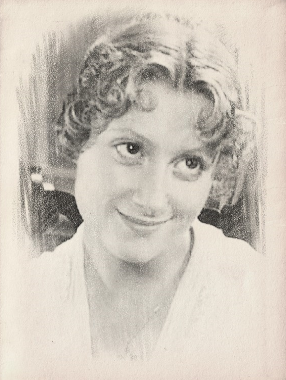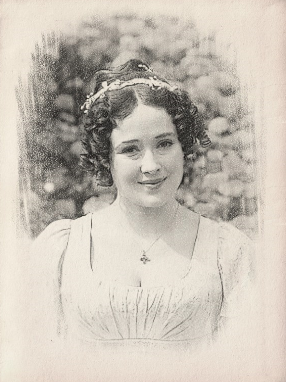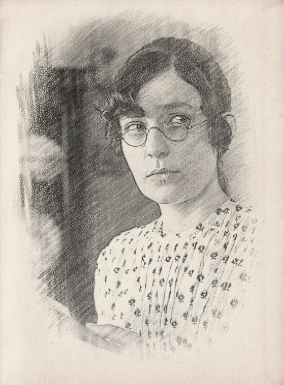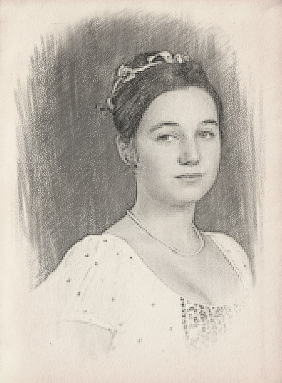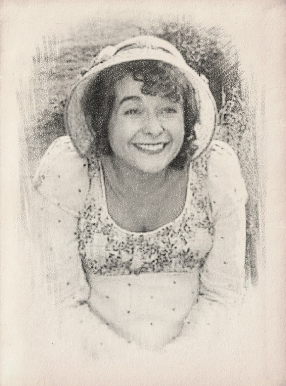EUGENIE COLLYER DISCUSSES THE FIGURE OF MR BENNET, HIS PARENTING, AND HOW THE CHARACTER OF HIS DAUGHTERS HAVE BEEN AFFECTED BY HIS DECISION TO MARRY THEIR MOTHER.
“…captivated by youth and beauty… he had married a woman whose weak understanding … had very early put an end to all real affection for her. Respect, esteem, and confidence had vanished … and all his views of domestic happiness were overthrown.” (Mr Bennet; ch 42)
“My child, let me not have the grief of seeing you unable to respect your partner in life” (Mr Bennet to Elizabeth; ch 59)
With his view of domestic happiness overthrown, Mr Bennet has experienced, first hand, the grief of being unable to respect his own partner in life. Early in the novel, we learn that he and his wife are not well suited - “three and twenty years had been insufficient to make his wife understand his character” (ch1). Despite her folly providing him amusement, we learn later that he is not happy (see above quote from chapter 42). We learn too that Elizabeth, is not unaware of “the disadvantages which must attend the children of so unsuitable a marriage”.
I would like to use ‘the five stages of grief’ (from Kübler-Ross, proposed as a formal model in 1969) as a lens through which we can consider Mr Bennet. The five stages are: denial, anger, bargaining, depression and acceptance. As a father, what influence would he have had on the early emotional and subsequent character development of his five daughters? I presume Jane Austen did not have such a model at her disposal, yet her genius lies in her ability to create characters that feel real; we recognise so much of human nature in them, even two centuries on. We often see both ourselves and others reflected in her characters. Why did she create this disgruntled, disillusioned father? Perhaps the author’s allusion to Mr Bennet’s changing feelings toward his wife and marriage, over time, creates a realistic background against which five very different daughters can be produced by a single set of parents.
The five different personalities of Mr Bennet’s daughters could reflect his movement through the five stages of grief – causing changes to his parenting style, and his attitude to wife, life and family. Consider the five stages along side the innocent naiveté of Jane; the cynical realism of Lizzie; the sombre, moralising Mary; Kitty, the empty-headed follower; and Lydia, a completely indulged and unchecked younger version of her mother.
Jane Bennet
The first stage of grief is denial; the first Bennet child is Jane. I will describe what Mr Bennet may have experienced at this time by drawing on behaviours and characteristics shown by Jane in the novel. Mr Bennet and Mrs Bennet began married life; he clung to a false – preferable – reality that his wife’s good humour is not just the appearance of it “which youth and beauty generally give”. He tries to think the best of her (as Jane does of everybody - “most earnestly did she labour to prove the probability of error”) putting off the inevitable as he begins to suspect the reverse. Being in denial, he conceals his true feelings (as Jane does - “her look and manners were open, cheerful, and engaging as ever, but without any symptom of peculiar regard” [Darcy describes Jane in his letter to Elizabeth]). Baby Jane Bennet was born into an environment where her father tried to think the best of her mother, despite evidence to the contrary, and, under the influence of denial, endeavours to hide his true feelings. Perhaps he even smiled too much! As a grown woman, “Jane united with great strength of feeling, a composure of temperament and a uniform cheerfulness of manner”; she is intelligent and yet “honestly blind to the follies and nonsense of others”; she is “entirely deceived by Caroline’s regard”; she learns of Wickham’s betrayal of Darcy, and tries to “make them both good”. Her father’s denial has shaped her into someone who can neither display her feelings nor interpret the world around her with anything but rose-coloured glasses.
Elizabeth Bennet
As the scales fell from Mr Bennet’s eyes, Elizabeth was born and denial shifted to anger, the second stage of grief. He realised that, although used to regarding himself as a man of sense, he had in fact married a very silly woman. Ridicule, sarcasm and cynicism are Mr Bennet’s means of expressing anger (perhaps also resentment and contempt - he “expos[es] his wife to the contempt of his own children”). When Elizabeth overhears Darcy’s insult at the ball, she has “no very cordial feelings towards him”, however, she does not sulk or bristle, she “told the story with great spirit among her friends” and “delighted in anything ridiculous.” Elizabeth and her father are certainly both able to feel anger. Elizabeth feels anger during Darcy’s first proposal, but her resentment of him is long-lived from when he first insulted her and forms the foundation of her prejudice against him. When Lydia runs away with Wickham, Mr Bennet’s “first transports of rage” are short lived as he searches for her in London, however, we see his “anger could be carried forward to such a point of resentment” that he bans them from visiting Longbourn and will not give Lydia money for new clothes.
Mary Bennet
We then come to the three younger daughters – as Mr Bennet entered the stage of bargaining, Mary entered the world. Then followed Kitty and Lydia, with depression and acceptance, respectively. Mary constantly quotes pithy ‘wisdom’, often missing the meaning, and misjudging the contexts in which she uses them. We can imagine Mr Bennet, upon reaching the bargaining stage, would have attempted to improve his wife’s understanding. He would have negotiated the reality he found himself in, by educating his wife by the means available to him. We know this to have failed because we meet Mrs Bennet 19 years later and she is still as silly as ever. Infant Mary would have witnessed this failed attempt, and her mother’s impenetrability, which could have left her equally uncomprehending of her father’s lessons.
Kitty Bennet
Impressionable Kitty may well have had very little influence from her father in her early years. Mr Bennet’s depression would have left him unequal to the task of engaging with his fourth child. This left Kitty seeking for an attachment she found in Lydia, desiring nothing more than to follow her in all her exploits. As Mr Bennet raised himself out of his funk and into the final stage, he accepted his fate. He disengaged from the idea of happily married life, and resigned himself to being married to the silliest woman in England. Lydia’s development went unchecked, and she fast followed in her mother’s footsteps.
Lydia Bennet
© Eugenie Collyer - Linguist and JALF Literacy Ambassador
To keep up with all things Jane Austen Literacy Foundation, make sure you subscribe to Pride & Possibilities by filling in your details at the bottom of this page! You can see previous issues here:
Images credits: BBC TV and Julia B. Grantham


